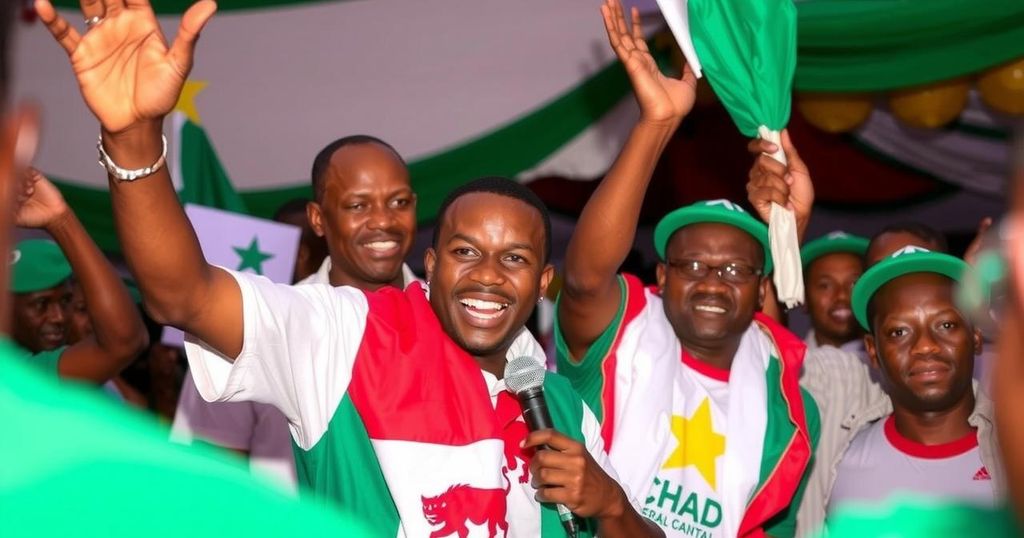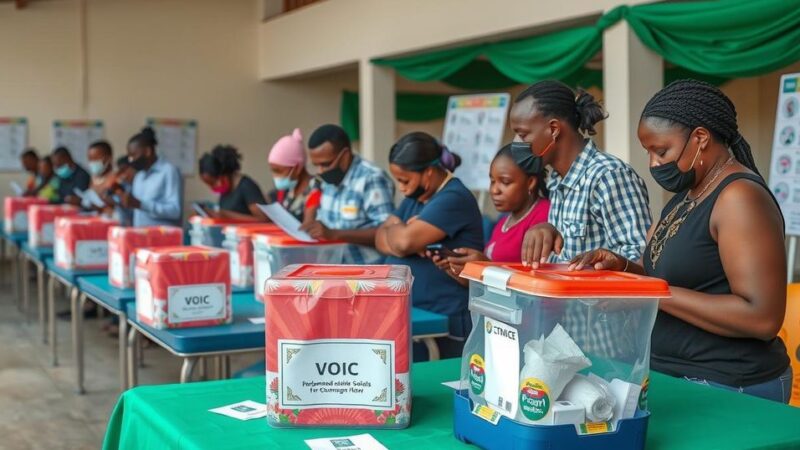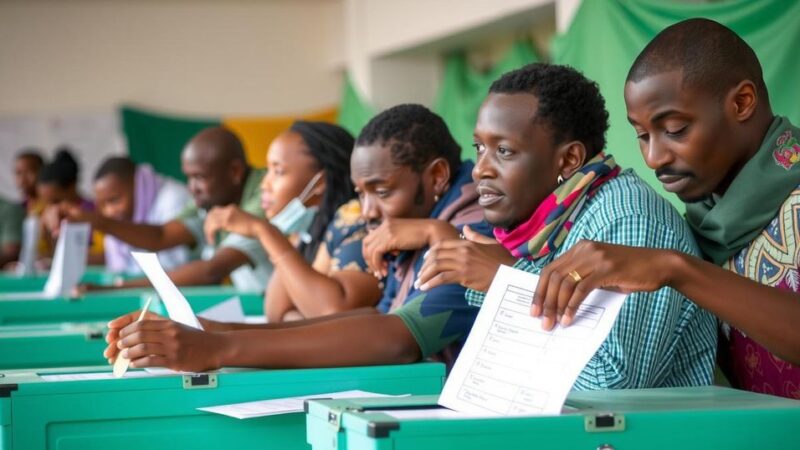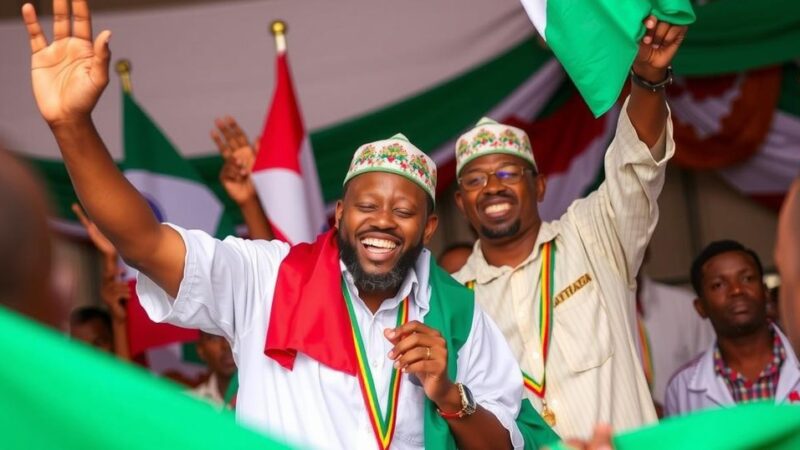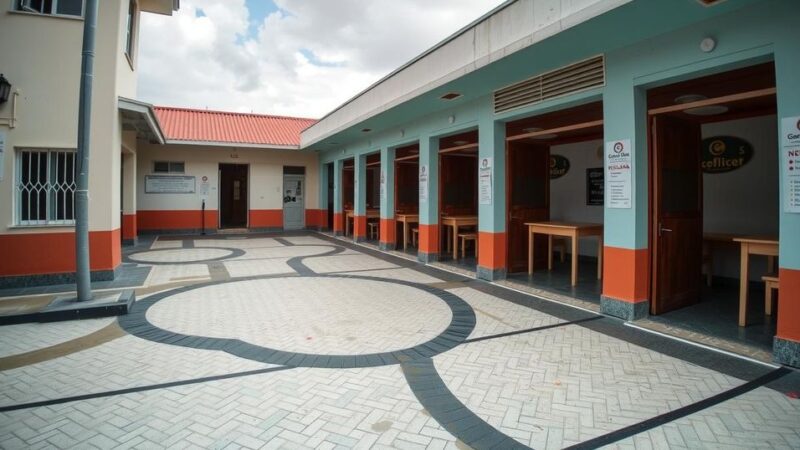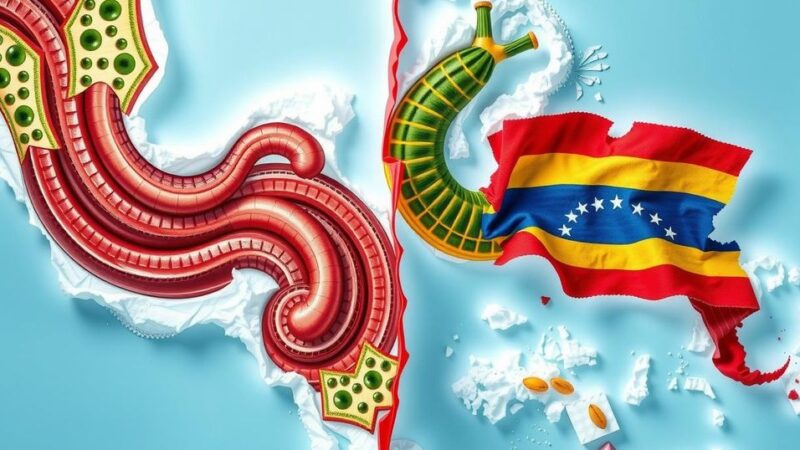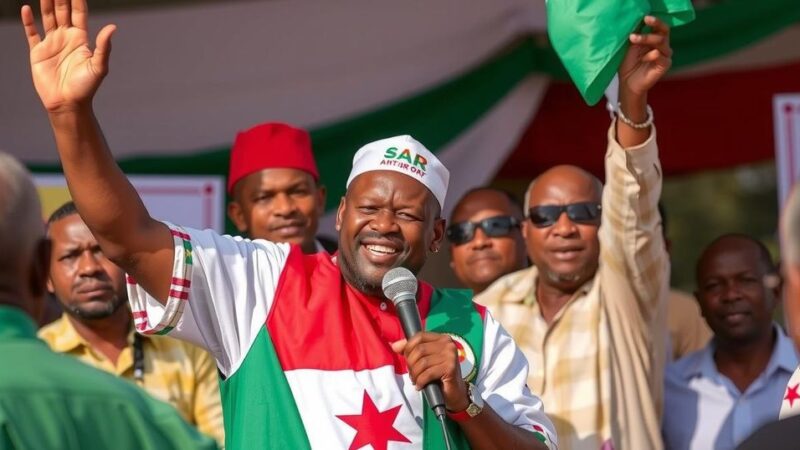Chad’s parliamentary elections concluded with the ruling MPS securing a majority amidst a boycott by opposition parties. President Mahamat Idriss Deby has been criticized for the lack of transparency in the electoral process, which has raised questions about the legitimacy of this transition to democracy. Meanwhile, Chad’s relations with France have soured, reflecting broader geopolitical shifts in West Africa.
The recent parliamentary elections in Chad, held amidst a boycott by opposition parties, have resulted in a decisive victory for the ruling Patriotic Salvation Movement (MPS) led by President Mahamat Idriss Deby. According to the National Elections Management Agency (ANGE), the MPS won 124 out of 188 seats, with a reported participation rate of 51.56%. Despite the government’s assertions that these elections represent a crucial step towards democratic transition, many opposition leaders, including Succes Masra of the Transformateurs party, have criticized the process as lacking transparency, thereby rendering the electoral outcomes questionable.
The elections occurred following President Deby’s rise to power, declared interim leader after the death of his father, who had held the presidency for thirty years. Deby was formally elected in May, and since then, he has taken steps to redefine Chad’s international relations, notably ceasing defense cooperation with France and considering withdrawal from regional security alignments. This move aligns with broader regional trends in West Africa, where several nations have distanced themselves from traditional partners in favor of new alliances, such as those with Russia.
Recent reports indicated that the Chadian security forces thwarted an attempted attack on the presidency, which government officials labeled as a destabilization effort. As Chad navigates these political changes, it remains to be seen how the new assembly will function with the current predominant MPS representation and the implications for the opposition’s role in governance.
Chad’s political landscape has been tumultuous, particularly since the passing of long-time President Idriss Deby in 2021 during an offensive against insurgents. His son, Mahamat Idriss Deby, took control as interim leader and subsequently won elections characterized by allegations of unfairness and lack of transparency. The MPS, which has dominated Chadian politics, faces challenges from opposition groups advocating for a more democratic process. The recent elections symbolize a crucial point in this ongoing struggle, as claims of a transition to democracy continue amidst significant international and internal scrutiny. Moreover, the evolving relationships between Chad and its traditional allies, such as France, highlight broader shifts in geopolitical alliances in the region.
The outcome of Chad’s parliamentary elections reinforces the ruling party’s stronghold on the nation’s political framework amid claims of democratic transition. These developments underscore ongoing tensions between the government and opposition factions, who contest the legitimacy of the electoral process. As regional dynamics shift, particularly concerning former colonial powers like France, Chad’s future political stability and direction will depend significantly on how it addresses these internal and external challenges.
Original Source: www.dw.com

